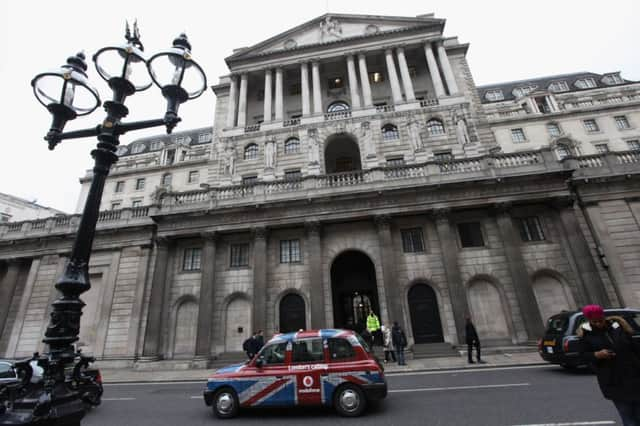Bankers could still be stripped of bonuses


It is proposing new rules to toughen up the remuneration code that would see employment contracts changed to allow for clawback of bonuses already received. Regulators currently have the power to force firms to halt bonus payments not yet cashed in, but once paid they are immune from clawback.
The Bank is carrying out a two-month consultation on the new plans, which focus on instances where there is evidence of employee misbehaviour or significant error, where a firm or business division has suffered a material financial hit, or where there has been failure in risk management.
Advertisement
Hide AdAdvertisement
Hide AdIt also wants to ensure the new rules apply to those indirectly responsible, such as bosses who should be held accountable for the behaviour of their staff, culture and strategy, as well as those who failed to take steps to identify or address misconduct. If given the green light, the new rules would come into effect on 1 January next year – in time for the next round of City and bank bonuses.
The move comes in the wake of recommendations from MPs and peers on the Parliamentary Commission on Banking Standards. It follows the financial crisis and scandals in recent years, such as the mis-selling of payment protection insurance (PPI), which has already cost the industry more than £20 billion.
Bonus rules have been strengthened since the credit crunch struck, with bank payouts deferred and made largely in shares. This has allowed for a number of recent high-profile clawbacks, with taxpayer-backed Lloyds Banking Group now set to recover all of the £1.45 million bonus handed to former chief executive Eric Daniels in 2010 as a result of its escalating PPI bill.
But there has been frustration that millions of pounds in bonuses paid out in the run-up to the banking meltdown are untouchable.
Andrew Bailey, deputy governor for prudential regulation and head of the Prudential Regulation Authority, said: “We won’t allow remuneration schemes to exist that encourage behaviour likely to jeopardise financial stability.
“The policy we are consulting on will ensure bonuses can be clawed back from individuals, where they have already been paid, if it becomes apparent they have put the stability of their firms at risk or engaged in inappropriate actions. This will provide a clear message to individuals of what is expected from them and the consequences of not acting properly.”
Britain views the ability to claw back bonuses as a better method for dampening excessive risk-taking than an EU cap on bonuses that will affect payments made from early next year. Bonuses will be capped at no more than fixed salary, or twice that amount with shareholder approval, and will apply to bankers earning more than e500,000 (£418,000).
However, Rob Moulton, of international law firm Ashurst, said clawing back bonuses already paid was politically attractive but tough to do in practice.
“What happens if the banker has spent it on champagne and drunk it?” he said.